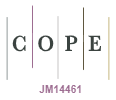Paulo Freire and his legacy for democratic education: a dialogic analysis of the stolen portrait of brazilian educators
DOI:
https://doi.org/10.5585/eccos.n61.15709Keywords:
brazilian education, dialogical pedagogy, identity, teacher, democracyAbstract
Currently, the word democracy is masked through depoliticized meanings faced by market demands and the contemporary geopolitical conjuncture, involving actions of social coercion being operationalized through mechanisms by which state disciplinary power is exercised. Thus, it is necessary to inquire about how it acts in the sense of building “truths”, “myths”, correlating them to the problem of knowledge construction. In this sense, it is evident that Freire's thought becomes current, in view of his cry for a fair, conscious and democratic society. In view of this, following political and socioeconomic transformations arising from a globalized productive paradigm, Brazilian educators find it difficult to understand the relationship between education and economy. In this environment, questions about the school's attributions and the functions performed by the teacher come into force. Furthermore, it can be said that in Brazil, teacher representations are constructed from voices and discourses that do not emanate from educators, but come from other professionals, such as journalists, economists and politicians. This means that society is immersed in a process of globalization that tends to adopt an educational policy by the parameters of neoliberal capitalist ideology, which makes Paulo Freire's thought essential, in his legacy for a democratic education and in his dialogic pedagogy, reiterating its importance due to the attacks it has suffered in the face of the policy of intolerance that has devastated the country, and which intensified after the 2018 elections.
Downloads
References
ARNALDO ANTUNES. Isto não é um poema é apenas um manifesto, um desabafo.
Disponível em: https://www.xapuri.info/poemas-revolucionarios/istonaoeumpoema-e-apenas-
um-manifesto-um-desabafo/ Acesso em: 29 set. 2019.
BAKHTIN, Mikhail Mikhailovich. A cultura popular na idade média e no renascimento: o contexto de François Rabelais. Tradução Iara F. Vieira. 8ª Edição. São Paulo: Hucitec, 2013 (7º capítulo).
BAKHTIN, Mikhail Mikhailovich. Estética da criação verbal. Tradução do russo Paulo Bezerra. 6ª Edição. São Paulo: Editora WMF Martins Fontes, 2011.
BAKHTIN, Mikhail Mikhailovich; VOLOSHINOV, Valentin. Marxismo e filosofia da linguagem. São Paulo, SP: Editora Hucitec, Annablume, 2002.
BRASIL. Parâmetros Curriculares Nacionais. MEC, Brasília, 1988.
CASTRO, Claudio de Moura. Você sabe estudar? Quem sabe estuda menos e aprende mais. Porto Alegre: Penso, 2015.
FREIRE, Paulo. A Educação na Cidade. 4.ed. São Paulo: Cortez, 2000a.
FREIRE, Paulo. Educação como prática da liberdade. 44ª Edição. São Paulo: Paz e Terra, 2018a.
FREIRE, Paulo. Pedagogia da Autonomia. 20ª Edição. São Paulo: Paz e Terra, 2001b.
FREIRE, Paulo. Pedagogia da indignação. São Paulo: UNESP, 2000b.
FREIRE, Paulo. Pedagogia do Oprimido. 66ª Edição. São Paulo: Paz e Terra, 2018b.
FREIRE, Paulo. Política e Educação. 5ª ed. São Paulo: Cortez, 2001a.
HALL, Stuart. A identidade cultural na pós-modernidade. Tradução: Tomaz Tadeu da Silva. 4ª Edição. Rio de Janeiro: LPA, 2000.
GADOTTI, Moacir. Boniteza de um sonho: ensinar-e-aprender com sentido. São Paulo:
Instituto Paulo Freire, 2011.
GADOTTI, Moacir. Educação popular, educação social, educação comunitária: conceitos e práticas diversas, cimentadas por uma causa comum. Revista Diálogos. IV CONGRESSO INTERNACIONAL DE PEDAGOGIA SOCIAL: Domínio Epistemológico, 2012, vol. 18, n. 2; p. 10-32.
LIBÂNEO, José Carlos. Adeus professor, adeus professora? Novas exigências educacionais e profissão docente. 11ª Edição. São Paulo: Cortez, 2011.
MACEDO, Elizabeth. As demandas conservadoras do Movimento Escola Sem Partido e a base nacional curricular comum. In: Revista Educ. Soc., Vol.38. n. 139, p. 507-524, 2017. Disponível em: http://dx.doi.org/10.1590/es0101-73302017177445 Acesso em: 29 set. 2019.
MELO NETO, João Cabral. Melhores poemas de João Cabral de Melo Neto. Seleção e prefácio de Antonio Carlos Secchin. 10 ª Edição. São Paulo: Global, 2010.
RANCIÈRE, Jacques. O ódio à democracia. Tradução: Mariana Echalar. São Paulo: Boitempo, 2014.
SARAIVA, Karla; VARGAS, Juliana. Os perigos da Escola Sem Partido. In: Revista Teias. Vol.18. n. 51, p. 68-84, 2017. Disponível em: https://doi.org/10.12957/teias.2017.30651 Acesso em: 29 set. 2019.
SECRETARIA DE ESTADO DA EDUCAÇÃO. Referencial Curricular: Lições do Rio Grande. Porto Alegre, RS, 2009.
SOBRAL, Adail. Do dialogismo ao gênero: as bases do pensamento do círculo de Bakhtin. Campinas, SP: Mercado de Letras, 2009.
SOBRAL, Adail; GIACOMELLI, Karina. Observações didáticas sobre a análise dialógica do discurso- ADD. In: Revista Domínios de Lingu@gem. Vol.10. n. 3, p. 1076-1094, 2016. Disponível em: http://dx.doi.org/10.14393/DL23-v10n3a2016-15 Acesso em: 29 abr. 2019.
VIGOTSKI, Lev Semenovich. A formação social da mente: o desenvolvimento dos processos psicológicos superiores. Tradução José C. Netto et al. 6ª Edição. São Paulo, SP: Martins Fontes, 1998.
Downloads
Published
How to Cite
Issue
Section
License
Copyright (c) 2022 EccoS - REvista Científica

This work is licensed under a Creative Commons Attribution-NonCommercial-ShareAlike 4.0 International License.
- Abstract 595
- PDF (Português (Brasil)) 408






